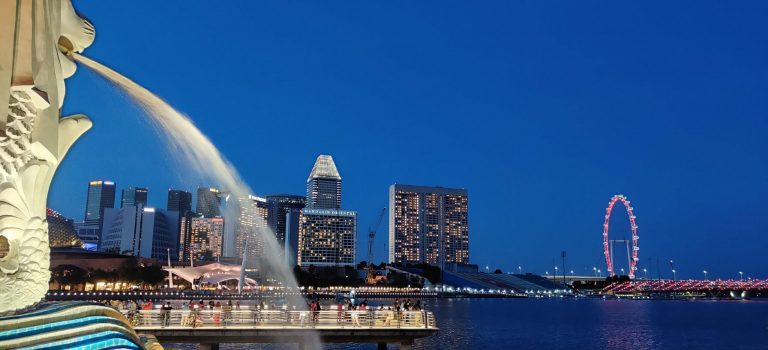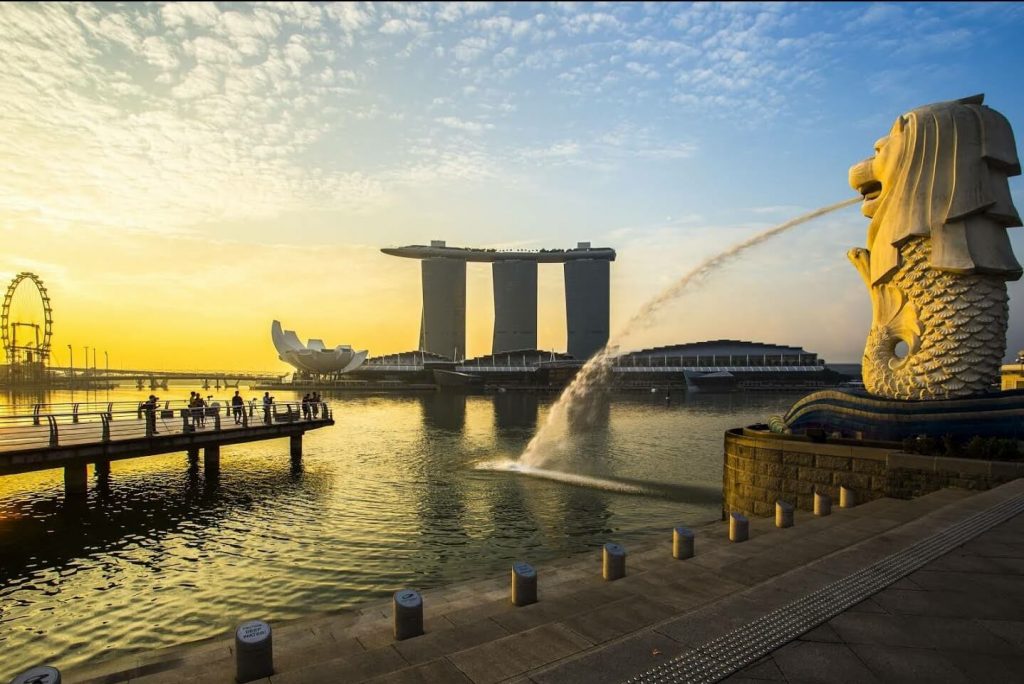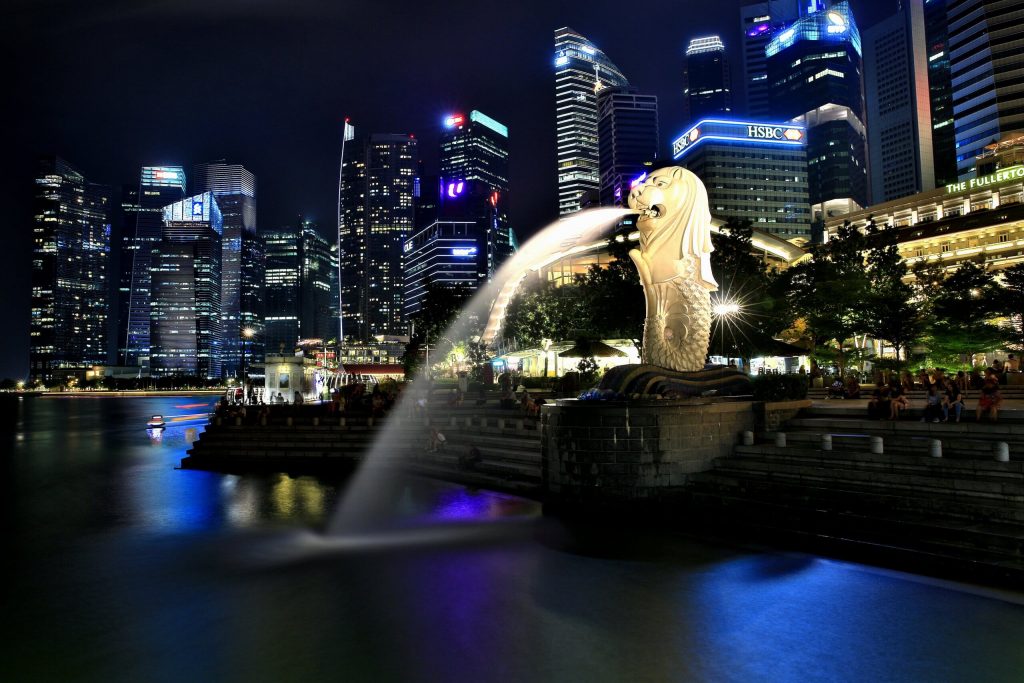History and Origins

The Merlion was first designed as an emblem for the Singapore Tourist Promotion Board (STPB) in 1964 – the lion head with a fish body resting on a crest of waves quickly became Singapore’s icon to the rest of the world.
Designed by Mr Fraser Brunner, a member of the souvenir committee and a curator of the Van Kleef Aquarium, the lion head represents the lion spotted by Prince Sang Nila Utama when he re-discovered Singapura in 11 AD, as recorded in the “Malay Annals”. The fish tail of the Merlion symbolises the ancient city of Temasek (meaning “sea” in Javanese) by which Singapore was known before the Prince named it “Singapura” (meaning “lion” (singa) “city” (pura) in Sanskrit), and represents Singapore’s humble beginnings as a fishing village.


Measuring 8.6 metres high and weighing 70 tonnes, the Merlion statue was built from cement fondue by the late Singapore craftsman, Mr Lim Nang Seng. A second and smaller Merlion statue, measuring two metres high and weighing three tones, was also built by Mr Lim. The body was made of cement fondue, the skin from porcelain plates and eyes from small red teacups.
The Merlion and the Cub were originally located at the mouth of the Singapore River, across from the Elizabeth Walk, just 120 metres from their present location. Also called the Merlion Park, the area soon became a popular tourist attraction and took its place among the famous landmarks of great cities of the world. Mr Lee Kuan Yew, the then Prime Minister of Singapore, officiated the installation ceremony of the Merlion on 15 September 1972. A bronze plaque commemorated the auspicious occasion with the inscription, “The Merlion has been erected as a symbol to welcome all visitors to Singapore”.


Today, the Merlion attracts more than one million visitors a year who make the trip to the Merlion Park to photograph this world famous icon at her new home, at the adjacent to One Fullerton.
Getting There
The Merlion’s current home is adjacent to One Fullerton, on a newly constructed 2,500 square metre park.